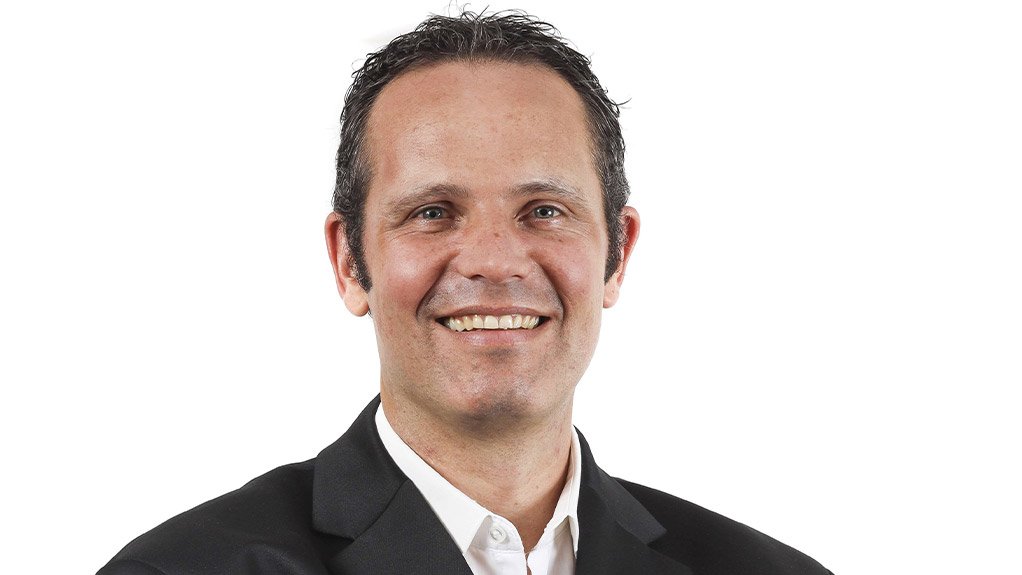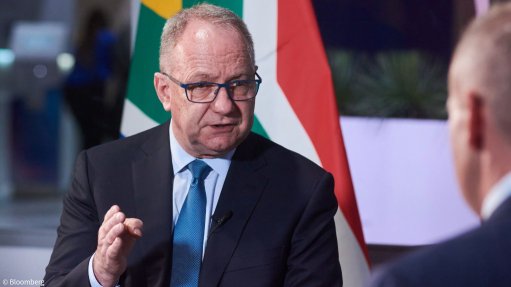Access to Energy – the African imperative
This article has been supplied by the author and has not been written or solicited by Creamer Media. It may be available only for a limited time on this website.
By Quintin McCutcheon, Global Marketing Director, Anglophone Africa at Schneider Electric
The ongoing energy crisis have set back global progress on universal access to electricity. According to the newest IEA (International Energy Agency) World Energy Outlook data, 660 million people will still be without access to electricity in 2030, with 85% of those living in sub-Saharan Africa..
The good news is that IEA report says microgrids are becoming the most cost-effective way to expand energy access in remote areas. Considering current scenarios, the IEA also predicts that by 2030, 25% of people that have access to electricity (in developing countries) will be powered by microgrids, fuelled by renewable energy sources such as solar.
For critical sectors and services such as healthcare or petrol stations on remote highways, access to resilient power sources is often a life-or-death scenario. A microgrid offers a feasible backup solution, intelligently generating and managing distributed energy resources (DERs), ensuring that during power outages, local organisations and communities can still generate and use electricity.
The level of access to electricity is different from country to country. However, in countries such as Nigeria and Myanmar, less than 60% of communities have access to electricity. For these communities, which are out of reach for the main grid, due to economic or locational reasons, installing microgrids are the simplest and fastest way in providing access to power.
A microgrid can also incorporate various renewable energy sources. With companies increasingly emphasising their climate and sustainability agenda, and the global push for decarbonisation, microgrids assist in meeting these sustainability targets.
The continued electrification of Africa
Electricity is the backbone of Africa’s new energy systems, powered increasingly by renewables. According to the IEA, Africa is home to 60% of the best solar resources globally, yet only 1% of installed solar PV capacity. That said, solar PV – already the cheapest source of power in many parts of Africa – is set to outcompete all sources continent-wide by 2030.
Universal access to affordable electricity, a goal set by 2030 in the SAS (Sustainable Africa Scenario), requires bringing connections to 90 million people a year, triple the rate of recent years.
Fortunately, there are success stories such as Ghana, Kenya and Rwanda which are on track to reach full access by 2030. The IEA detailed analysis shows that extending national grids is the least costly and most prudent option for almost 45% of those gaining access to 2030. In rural areas, where over 80% of the electricity-deprived live, microgrids and standalone systems, mostly solar based, are the most viable solutions.
Moreover, renewables, including solar, wind, hydropower and geothermal will account for over 80% of new power generation capacity by 2030, according to SAS.
From an energy skills development, there’s also tremendous opportunity in Africa. The energy sector, and more particularly electricity and renewable energies, offer a lot of potential, especially in areas where access to energy is difficult and growing.
Tangible interventions
At Schneider Electric, we believe by equipping young people with skills and giving them the means to support their families, we can contribute to the growth of the local electricity and electrotechnical sectors. This, in turn, will improve quality of life and create sustainable jobs.
The Schneider Electric Foundation also provides long-term support for vocational and entrepreneurial training organisations. These include associations and electrical profession educational institutions. The vocational training and entrepreneurship programme captures 67% of the funding allocated by the Foundation.
Furthermore, the Schneider Electric’s Access to Energy programme focuses its efforts on three areas; training and entrepreneurship programmes, social and inclusive business, and impact investment funds.
Since 2009, the Access to Energy programme has electrified 39.7 million people, trained more than 397,000 students, 6992 trainers, supported more than 5,600 entrepreneurs and invested in 26 companies.
As an impact company, our goal is to provide 50 million people access to clean electricity, train one million people, and support 10,000 entrepreneurs by 2025. In Africa, our Access to Energy programme has connected more than 25 million people, trained 28,000 people in 90 plus training centres situated in 27 countries.
Comments
Press Office
Announcements
What's On
Subscribe to improve your user experience...
Option 1 (equivalent of R125 a month):
Receive a weekly copy of Creamer Media's Engineering News & Mining Weekly magazine
(print copy for those in South Africa and e-magazine for those outside of South Africa)
Receive daily email newsletters
Access to full search results
Access archive of magazine back copies
Access to Projects in Progress
Access to ONE Research Report of your choice in PDF format
Option 2 (equivalent of R375 a month):
All benefits from Option 1
PLUS
Access to Creamer Media's Research Channel Africa for ALL Research Reports, in PDF format, on various industrial and mining sectors
including Electricity; Water; Energy Transition; Hydrogen; Roads, Rail and Ports; Coal; Gold; Platinum; Battery Metals; etc.
Already a subscriber?
Forgotten your password?
Receive weekly copy of Creamer Media's Engineering News & Mining Weekly magazine (print copy for those in South Africa and e-magazine for those outside of South Africa)
➕
Recieve daily email newsletters
➕
Access to full search results
➕
Access archive of magazine back copies
➕
Access to Projects in Progress
➕
Access to ONE Research Report of your choice in PDF format
RESEARCH CHANNEL AFRICA
R4500 (equivalent of R375 a month)
SUBSCRIBEAll benefits from Option 1
➕
Access to Creamer Media's Research Channel Africa for ALL Research Reports on various industrial and mining sectors, in PDF format, including on:
Electricity
➕
Water
➕
Energy Transition
➕
Hydrogen
➕
Roads, Rail and Ports
➕
Coal
➕
Gold
➕
Platinum
➕
Battery Metals
➕
etc.
Receive all benefits from Option 1 or Option 2 delivered to numerous people at your company
➕
Multiple User names and Passwords for simultaneous log-ins
➕
Intranet integration access to all in your organisation





















